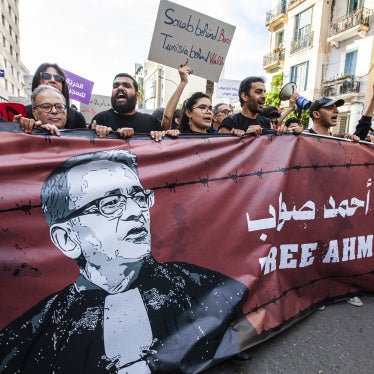As the first round of elections for the People's Assembly elections in Egypt were getting underway, Human Rights Watch today criticized a pattern of harassment of political opponents and human rights activists that is not conducive to a free and fair election.
Elections can express the will of a country's citizens only if people can meaningfully exercise basic political rights," said Hanny Megally, executive director of the Middle East and North Africa division of Human Rights Watch. "When people are thrown in jail and organizations shut down for trying to monitor these elections, for instance, there is good cause for concern," he said.
In a six-page election backgrounder, Human Rights Watch pointed to several factors which might impact the fairness of the upcoming elections:
· Restrictions on freedom of association and assembly, including the ability to form political parties, to hold public rallies and organize marches as part of an electoral campaign, · Arrests and prosecution before military and state security courts of political opponents and potential opposition candidates, in particular members of the Muslim Brotherhood, · Restrictions on freedom of expression including banning of books and newspapers and the instituting of criminal charges against journalists, and · Harassment of human rights activists and others preparing to monitor the elections.
Human Rights Watch welcomed a July 8 ruling by Egypt's Supreme Constitutional Court which led to full judicial supervision of the election process. Such supervision was lacking in the 1990 and 1995 parliamentary elections.
However, Human Rights Watch noted concerns raised by senior members of the Egyptian judiciary and professors of constitutional law that the changes may not be sufficient to guarantee fair elections. For example, final say on the selection of members of the judiciary for electoral supervision rests with the Minister of Justice, and some of the judges appointed to head polling stations are government employees attached to the Ministries of Justice or Interior.
"In order to ensure the complete independence and impartiality of electoral supervision the judges should have been appointed, and not just nominated, by the Supreme Judicial Council," said Hanny Megally, executive director of the Middle East and North Africa division of Human Rights Watch. "This would help remove fears that such appointees may be unduly influenced by or pressured by their ministries," he said.







